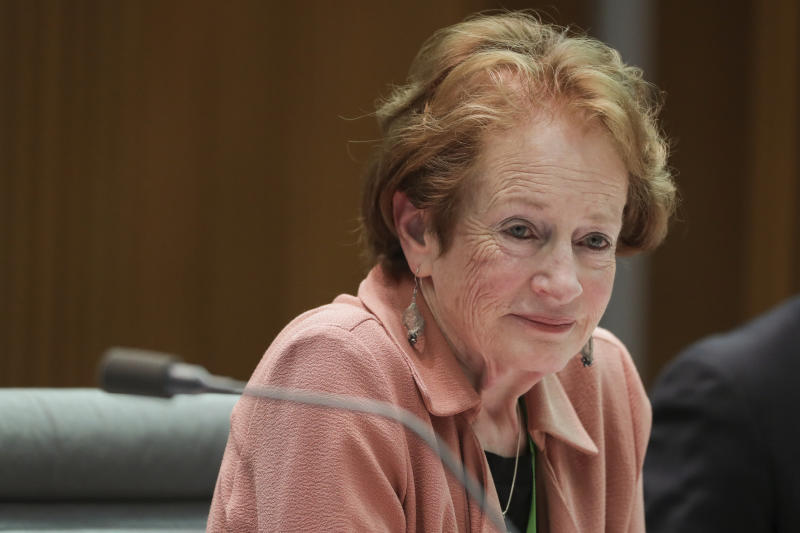The Honourable Margaret Ackary Stone AO FAAL
1942 – 2021
Legal Scholar & Academic, Judge of the Federal Court of Australia, Judge of the Supreme Court of the ACT, Inspector General of Intelligence and Security

T he Honourable Margaret Ackary Stone obtained a Bachelor of Arts from the University of Sydney and subsequently became an alumna of the Australian National University where she obtained an LLB. Margaret would gain admission to the Yale Law School in New Haven Connecticut in the USA to study for the LLM, an institution in North America known for producing academics of the highest calibre.
Stone was an outstanding scholar and a university academic, having taught for 15 years and later serving as Sub-Dean of the University of New South Wales Law School for some seven years. She also became a solicitor in that time, becoming a partner at Freehill Hollingdale & Page in 1993. She advised mostly in commercial property, infrastructure and development, commercial finance, and some taxation matters. She had the best of academia and a scholar’s life, together with a practitioner’s life in a firm.
Stone was sworn in as a judge of the Federal Court of Australia in October of 2000 and would also sit as an additional judge of the Supreme Court of the ACT from time to time. She took retirement from the Federal Court in March 2012 but would continue to provide her views and experience, becoming the judge-in-residence at the Melbourne University Law School.
Stone also devoted a large part of her later career to overseeing Australia’s intelligence community. This was a rare and distinguished role. From 2012 to 2015 she served as the independent reviewer of ASIO’s adverse security assessments and from 2015 to 2020 as the Inspector-General of Intelligence and Security (IGIS).
James Renwick CSC SC, who was independent national security legislation monitor during much of Stone’s tenure as IGIS said this of her:
Margaret Stone did a quite marvellous job. Although serious about her work she does have a sense of humour. One of the questions asked when you do your security interview is do you have any pseudonyms? Now I don’t and neither does she, but I was standing next to her at the coffee queue at the Department of Prime Minister and Cabinet. They said, 'what's your name?' and I said, 'James', and they asked Margaret, 'what's your name?' She said, 'I'm Jane.' I said, 'no you're not.' She said, 'Look, I can't stand my name being yelled out so I always use a pseudonym.'
I was Monitor during much of Margaret Stone’s tenure as IGIS. We had
adjoining offices and spoke often. She saved me from many errors. The IGIS was established as a result
of
one
of the recommendations of Royal Commissioner Justice Robert Hope AC. It performs the vital role
of
Ombudsman to the Australian Intelligence Community, measuring its activities against standards of legality,
human
rights and propriety. It has complete and constant access to all personnel, premises and information
held
by
each part of the AIC. Fearless and independent, universally respected within government and the AIC,
uncompromising in her work but never humiliating of individuals, Margaret set a standard unlikely to be
surpassed. In
her final academic article, 'Reflections on Oversight of Intelligence Agencies', published in the October
edition
of
the Australian Law Journal –
a special edition on National Security and the Law- she
wrote:
The tension between secret intelligence and civil rights and liberties is not reconcilable; inevitably, secrecy threatens rights, and rights weaken secrecy. Each is compromised. In broad terms, it is for government and the Parliament to decide what is an appropriate compromise between the secret collection of intelligence and the protection of civil rights and liberties and to embody that compromise in legislation. What is clear from Australia’s present legislation is that the Parliament has agreed that the intelligence agencies should be accountable for the way in which they discharge their responsibilities and, except where secrecy demands otherwise, that accountability should be transparent.
It is a mark of her achievement as IGIS that she ensured accountability of the AIC, upholding civil rights and liberties while not diminishing the effectiveness of the AIC. Australia is in her debt.
Stone's three daughters and her husband Jonathon survive her.
Kevin Tang, 8 Wentworth Chambers